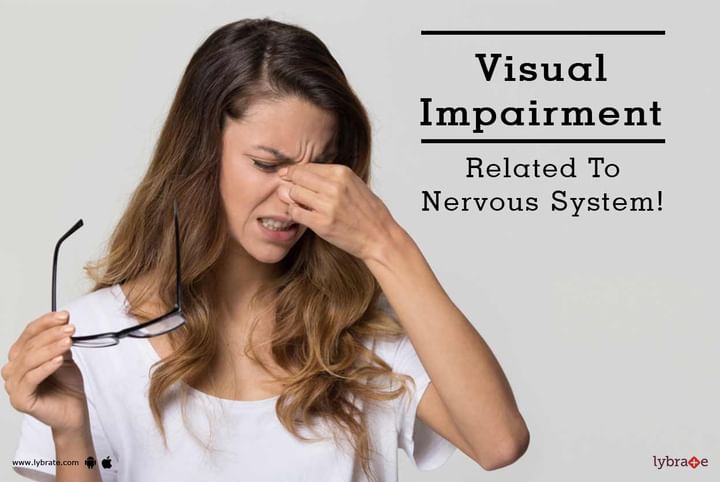Visual Impairment Related To Nervous System!
People may suffer from visual impairment even though their eyes are perfectly normal. Such loss of vision may result from neurological impairment.
Vision is the combination of image formation and perception of various attributes of the image by the brain. When the brain is not able to perceive images or various attributes of images, the patient may suffer from neurological impairment of vision. Such impairment owes its origin to the nervous system.
Causes of Visual Impairment:
There are various areas in the brain that process some or the other attribute of the image that has formed on the retina. Occipital cortex, the area situated at the rear side of the brain is a very important site. It is responsible for processing visual stimuli and allowing people to make an idea about shape, distance, movement, color, etc. The severity of loss of vision depends on the extent and location of damage in the brain.
Neurological loss of vision may result from acquired brain injury, difficulties with visual perception, impairment in coordination of the eyes, etc. All these may stem from damage areas in the brain that are responsible for vision. There are many areas in the brain that are responsible for vision.
These areas can get damaged from various accidents like:
-
Stroke: If a person suffers a stroke, a part of his or her brain is likely to get damaged due to a haemorrhage or a blocked blood vessel.
-
Traumatic Brain Injury: A traumatic brain injury such as in a car accident or a violent fall can damage visual perception of the brain.
-
Infections: Infections such as meningitis attack the brain and may impair various areas of it.
-
Lack of Oxygen: People may suffer from lack of oxygen if they experience accidents like a near-drowning episode or a heart attack or something else, which has the effect of interrupting blood flow to the brain.
-
Diseases: Diseases such as brain tumors, multiple sclerosis etc. can precipitate neurological vision loss.
Symptoms of Visual Impairment:
Symptoms of neurological vision loss depend on the type of vision impairment and the location of damage in the brain. It may include:
-
Blurry vision: In Blurry vision, a person will not see things clearly or may see something in light but find it difficult to see them in dim light.
-
Double vision: In double vision, the patient sees a single object as two and cannot merge them as one.
-
Problems with depth perception of objects
-
Problem with bright light: In this type of problem, a person experiences difficulty seeing an object in a bright light. One may also feel pain or discomfort in the eye in bright light.
-
Difficulty with interpreting the object the person is looking at
-
Partial loss in the visual field: In this problem, half of the visual field in each eye is missing.
Treatment of Visual Impairment:
There is hardly any treatment for such vision loss since the rectification of visual acuity is of no help. Depending on the location and degree of neurological impairment, vision may improve over time. Some children with acquired brain injury or impairment in the coordination of the eyes and difficulties with visual perception also tend to improve with age.
Conclusion:
This is a type of vision loss where glasses, contact lenses, surgeries, or eye drops are not going to help. Such vision loss is usually permanent. Children with similar symptoms need to be presented with pictures, bright light, etc., which may help to form an idea about the object.



+1.svg)
